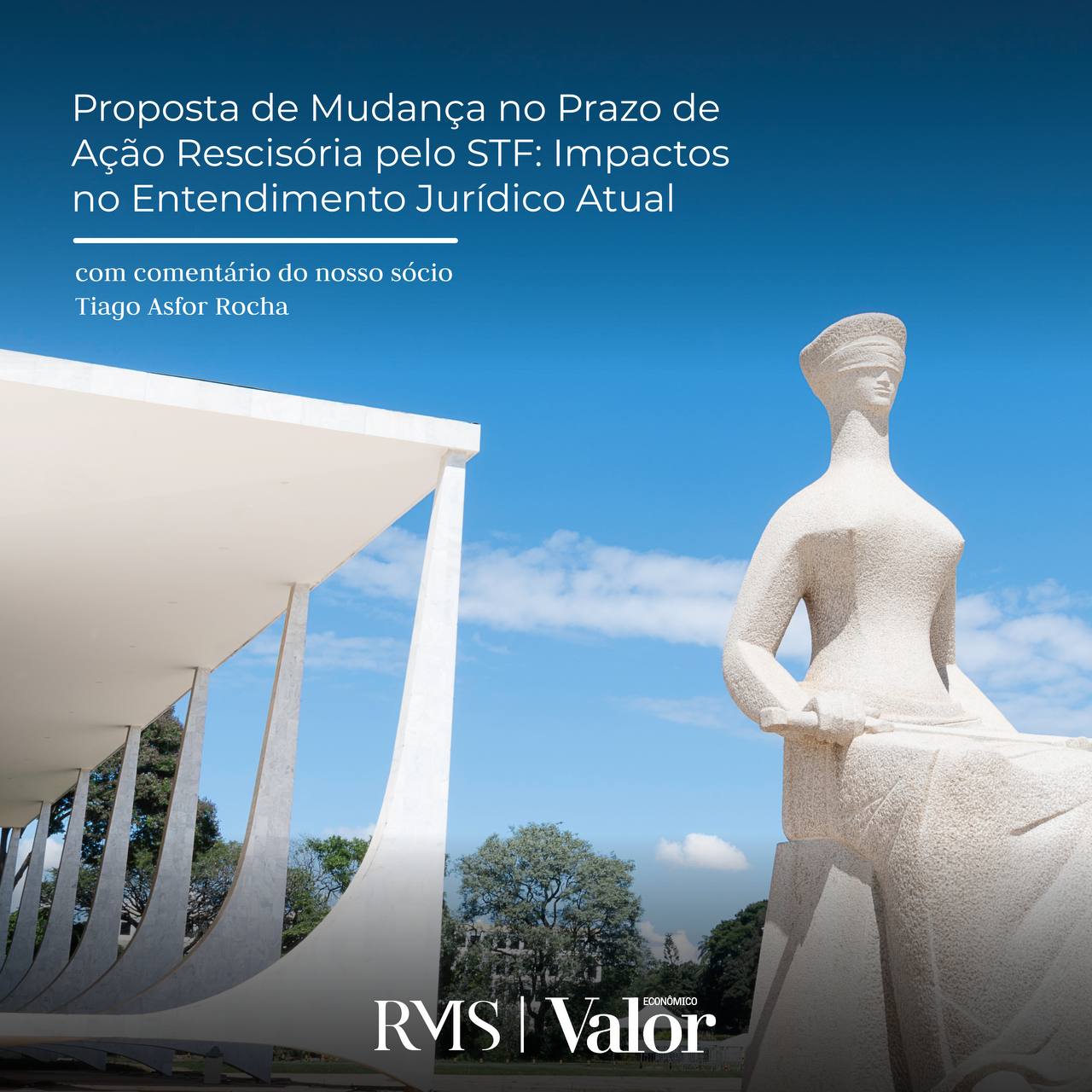
(PT) Proposta de Mudança no Prazo de Ação Rescisória pelo STF – com comentário de Tiago Asfor Rocha
Sorry, this entry is only available in PT.

The Federal Council of the OAB (CFOAB) unanimously rejected the request of the Ministry of Foreign Affairs regarding the possibility of allowing foreign offices and professionals to operate in Brazil. The request is linked to the fact that Brazil is in the process of joining the Organization for Economic Cooperation and Development (OECD), having formalized the application for membership in 2017, and, according to the Ministry of Foreign Affairs, the Liberalization Codes OECD would not allow different treatment for non-residents of other states participating in the OECD.
The Liberalization Codes, according to the OECD¹, are legal instruments that establish rules of behavior for governments, based on the central idea of eliminating restrictions on capital movements and other transactions. Members are guaranteed the right to maintain reservations regarding liberalization, whether total or limited, when adhering to the Code or introducing new items to the list of services that make up the annex.
Such documents are the result of decisions by the OECD Council, taken by consensus, in which all members are represented, becoming binding in so far as they derive from a treaty, depending on the permission contained in the OECD Convention², for the organization to take binding decisions for all members in order to achieve their goals.
In Brazil, the Advocacy Statute (Law No. 8.906 / 1994) stipulates that the foreigner must fulfill, in addition to the national requirements for registration as a lawyer, provided for in article 8, present the graduation title obtained in a foreign institution, duly validated by Brazilian higher education institution.
The matter is regulated by Provision No. 91/2000, of the CFOAB, which regulates the way in which foreign offices and professionals, regularly hired in their country of origin to practice law, can provide legal services in Brazil. Therefore, the practice of consulting in foreign law is restricted, and the exercise of judicial prosecution and consulting or advisory in Brazilian law is prohibited. In addition, authorization from the OAB is essential, which will always be granted on a precarious basis, upon presentation of mandatory documents, and must be renewed every three years.
The Special Commission for the Evaluation of Brazil’s Adhesion to the OECD, created in CFOAB, in 2019, to discuss the matter, identified that “of the 36 countries that currently make up the OECD, 19 establish some type of restriction on the provision of legal services by graduates or located in other countries “, ranging” from the complete prohibition to the provision of legal services by non-nationals […] to more tenuous restrictions, such as the imposition that the professional is resident in the country […], or the preventing foreigners from representing clients in courts ”.
The aforementioned opinion also found that in Brazil there are no obstacles to the provision of legal services by the foreign individual, but the requirement to complete formalities that seek to ensure the ability to act in Brazilian jurisdiction, recognizing that Provision No. 91 / 2000 adequately disciplines the matter, and reinforcing that the commercial model of law practiced in some countries is incompatible with the public character of the practice of the legal profession in Brazil.
It was concluded, therefore, by the feasibility and need “that reservations be made regarding the provision of legal services by foreigners in Brazil” during the membership of the OECD, so that “the entry of foreigners in OAB staff only occurs if the requirements set out in article 8 of the Law of Advocacy “and” the provision of legal services by foreigners is limited to the application of the law in force in their countries of origin “, as provided in Provision No. 91/2000.
Thus, the recommendation of the CFOAB to the Brazilian government will be to establish reserves of the duty of liberalization, particularly with regard to private law activities, such as the application to the Judiciary and the special courts, as well as the activities consultancy, legal advice and direction, as provided for in article 1 of the Law
By: Wilson Sales Belchior
¹ OECD. OECD Codes of liberalization: User’s Guide, 2019. Available at: http://www.oecd.org/investment/investment-policy/38072327.pdf. Accessed on: 28 oct. 2020.
² OECD. Convention on the Organization for Economic Co-operation and Development, 1960. Available at: https://www.oecd.org/general/conventionontheorganisationforeconomicco-operationanddevelopment.htm. Accessed on: 28 oct. 2020.

Sorry, this entry is only available in PT.

We took part in the "Law Firms Meeting 2023" event in the city of São Paulo and were awarded by Itaú in the Indemnity Vehicles category...